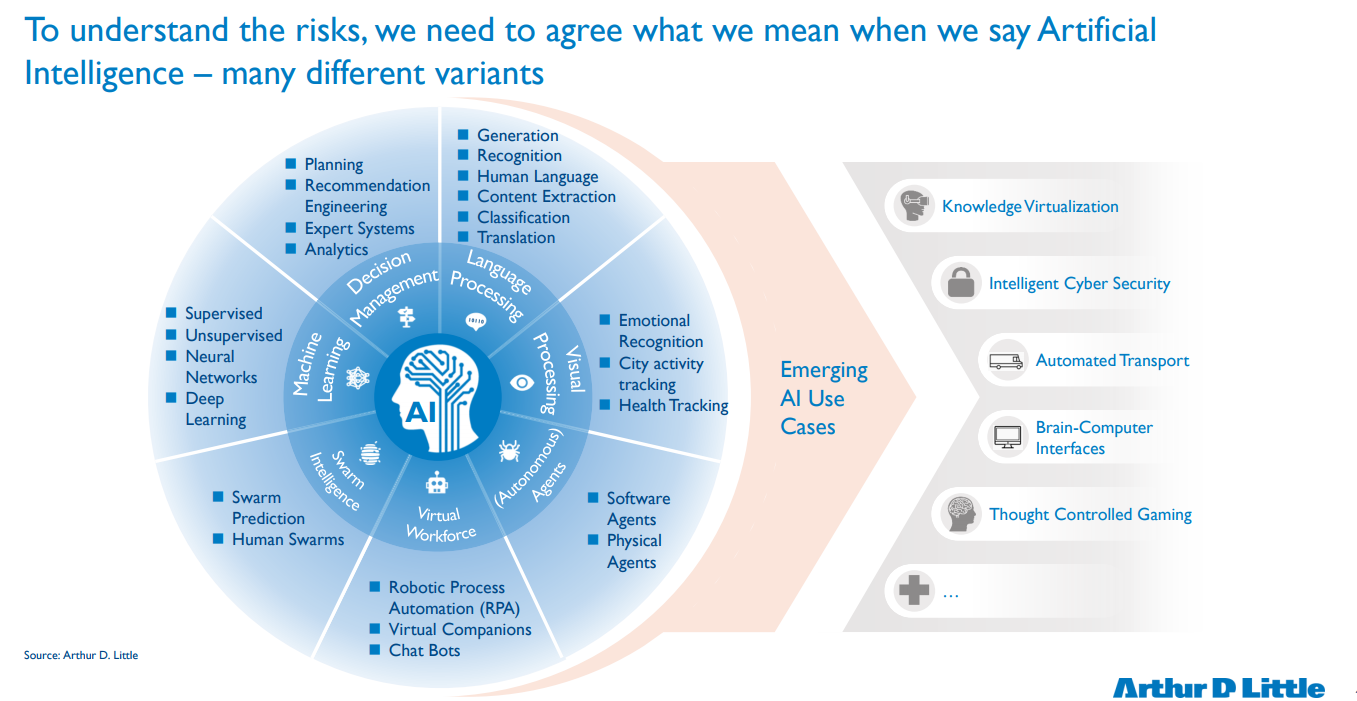Sorry, I’m being flippant. I do enjoy how the global mobile industry gets excited by innovation. Except in the case of AI, it extends far beyond telecoms. If you believe the likes of Vladimir Putin, whoever masters the craft of AI will one day rule the world…
But let’s not get political, let’s at least try and myth bust the real AI opportunity facing the global mobile industry. I’ll be honest, when it comes to understanding AI, I’m very much playing catch up. Almost all our clients are pinning their hopes on their ability to harness and use AI to help accelerate and streamline processes, reduce costs and differentiate services. Trouble is, much like other ‘big opportunities’ from the past, each of them has a different definition of what AI actually is and the impact it will have.
I’m therefore very thankful to Arthur D. Little for laying bare some AI facts – and seven clear emerging use cases for it. I was invited to attend an Innovation Summit at Mobile World Congress Americas by the GSMA (thanks Ed!) The first session was part dedicated to AI, and it proved extremely educational.
The main recurring theme uniting all of them is operational efficiency – finding a way to manage vast quantities of data, and putting otherwise redundant data to good use. Then we get into predictive use cases where machines can analyse the frequency of regular transactions to predict certain behaviours and manage decisions.
Somebody mentioned AI as playing a critical role in managing ‘decision fatigue’ – looking at vast swathes of data, so no one person has to, in order to extract more value from it. This means better monetising data assets or reducing costs by helping people make informative decisions – but holding off on making the actual decisions for us… Although it could…
This is where things get a little political, a bit uncomfortable, a tad squeaky… It’s not so much the decision making itself as much as it is the implications of getting critical decisions wrong – and having the impact of wrong decisions multiplied countless times through various connected automated processes. Which is why the autonomous car market is a little nervous (though would never admit it…)
A couple of speakers used an example of AI being better at lip reading than humans – but then admitted that nobody in their right minds would guarantee its accuracy, without human intervention, for decision making purposes.
At present, AI can’t manage multiple applications. It works best when used in specific applications. So, the mobile industry will comfortably extract value from it, if it is realistic with what it expects to achieve from it. That means identifying clear use cases and working within defined boundaries – at least until its potential is better known.
Arthur D Little’s seven use cases comprise machine learning, decision management, language processing, visual processing, autonomous agent, virtual workforce and swarm intelligence. I found this massively helpful – I hope you do too.

Bottom line? Computers won’t replace people anytime soon and it is unlikely to destroy humanity… It can do an admirable job of diagnosing faults in a mobile network however…
All transformational technology starts somewhere…















